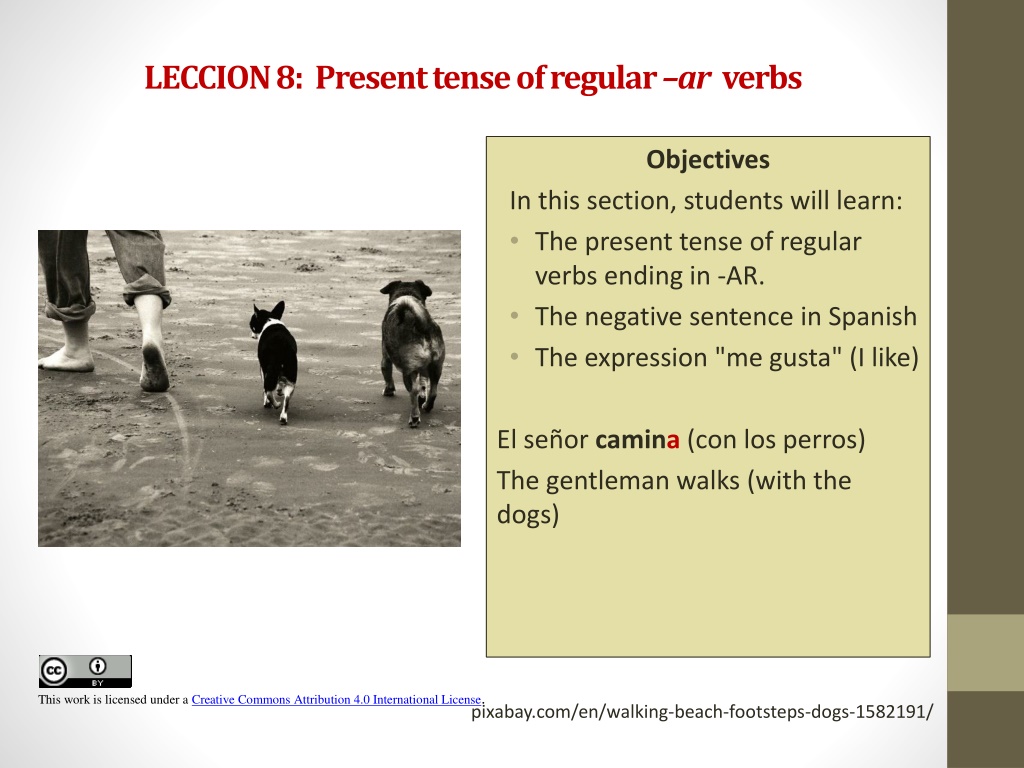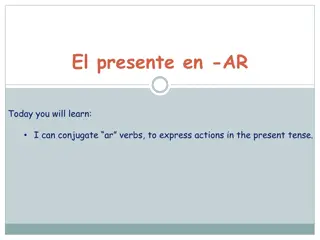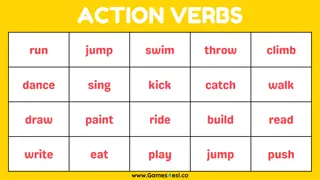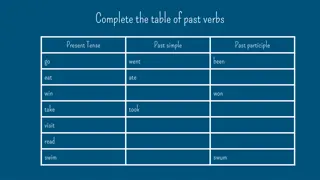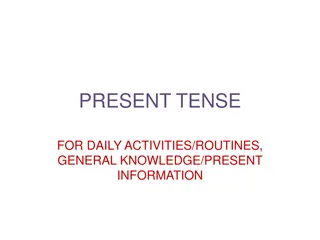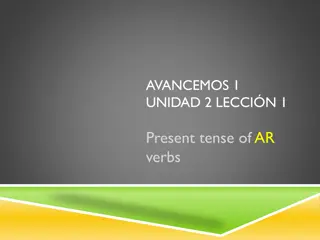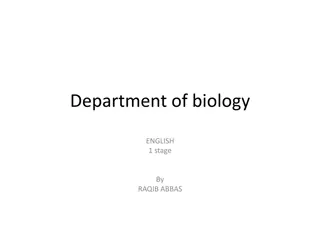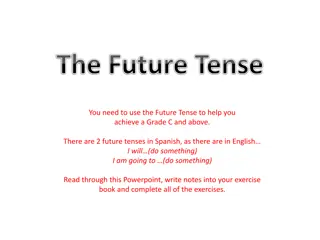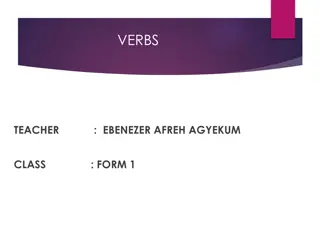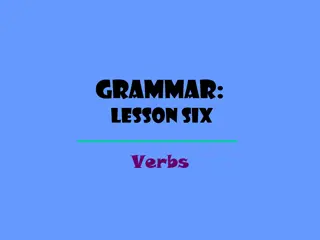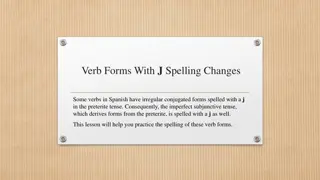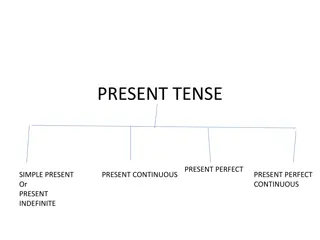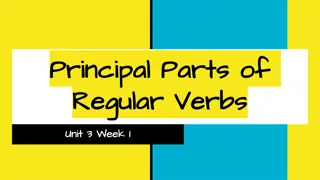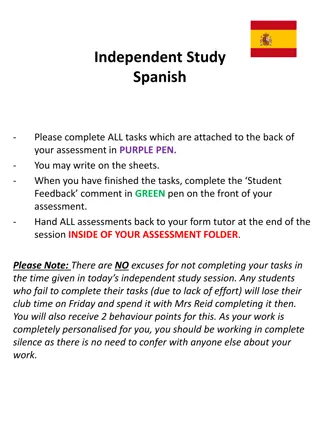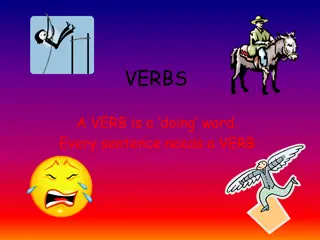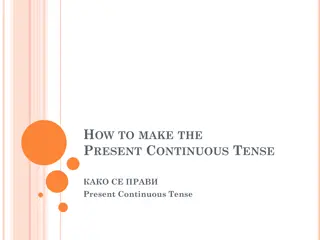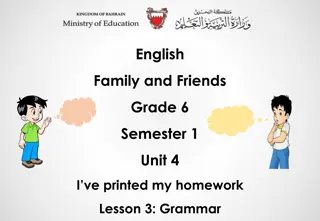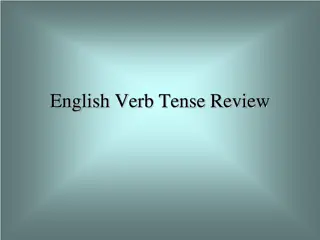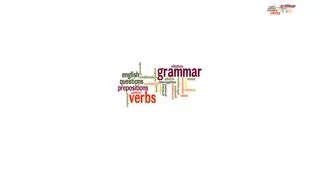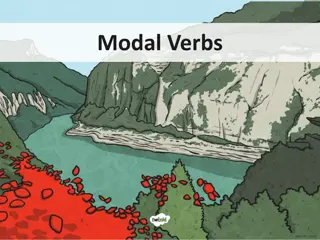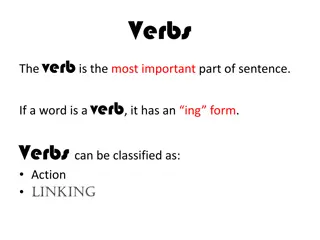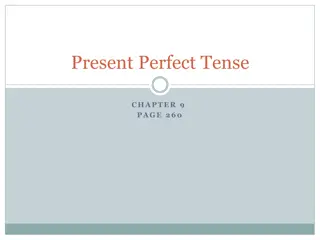Learning Regular -AR Verbs in Spanish Present Tense
Introduction to regular -AR verbs in Spanish, focusing on conjugation in the present tense, negative sentences, and the expression "me gusta" (I like). Learn about verb infinitives, conjugation patterns, and using definite articles with likes and dislikes. Practice recognizing common -AR verbs and forming negative sentences easily. Creative Commons licensed images provide visual aid for learning.
Download Presentation

Please find below an Image/Link to download the presentation.
The content on the website is provided AS IS for your information and personal use only. It may not be sold, licensed, or shared on other websites without obtaining consent from the author. Download presentation by click this link. If you encounter any issues during the download, it is possible that the publisher has removed the file from their server.
E N D
Presentation Transcript
LECCION 8: Present tense of regular ar verbs Objectives In this section, students will learn: The present tense of regular verbs ending in -AR. The negative sentence in Spanish The expression "me gusta" (I like) El se or camina (con los perros) The gentleman walks (with the dogs) This work is licensed under a Creative Commons Attribution 4.0 International License. pixabay.com/en/walking-beach-footsteps-dogs-1582191/
OVERVIEW This chapter is your introduction to the regular verbs in Spanish ending in AR, the most common ending. The formal term for an unconjugated verb is "Infinitivo" (infinitive), thus the infinitive of "ella trabaja" is simply "trabajar" More grammar: A verb has two parts: The stem (the unchanged part) and the ending (the part of the verb that changes according to the pronoun. The verb TERMINAR has two parts: TERMIN-AR/ ESPERAR: ESPER-AR To conjugate a verb you simply substitute the -AR for the ending corresponding to a pronoun: Yo termin-o (I finish) Nosotros esper-amos (We wait/ we hope) Ellos dese-an (They wish)
OVERVIEW Regular verbs are those that follow rules and patterns, unlike the irregular verb SER. You must be familiar by now with the subject pronouns in Spanish (yo, t , etc) and the difference between T and Ud.. Review them First see if you can recognize some of the following verbs without looking at the translation: Amar, bailar, cantar, estudiar, hablar, jugar, tomar) Attention: The verb buscar (to look for) does not need a preposition: Nosotros buscamos una calle (We look/are looking for a street) (to dance, to sing, to study, to speak, to play, to take)
OVERVIEW: ME GUSTA/ TE GUSTA Now for the expression ME GUSTA (I like) First, you never say Yo gusto. Gustar is a different type of verb. This is what you need to know for this lesson: Me gusta Boston/ Me gusta el caf (I like Boston/ I like coffee) Te gusta Boston/ Te gusta el caf (You like Boston/ You like coffee When you express likes and dislikes you need the definitive article el or la , except for proper names, such as Boston. How would you say I like Teresa?= Me gusta Teresa How about: Do you like Boston? =Te gusta Boston? Gustar can also be used with an Infinitive, in this way: Me gusta cantar (I like to sing) Te gusta hablar espa ol (You like to speak Spanish)
The negative form: Very easy, just add NO before the verb: No me gusta el caf Nosotros no trabajamos
OVERVIEW: ME GUSTA/ TE GUSTA One more thing: We have used I like with singular nouns. How then would you say: I like the classes? = me gustan las clases Yes, you only add an N to the verb, the rest of the sentence is the same Translate now the following sentences: 1. I like the Spanish class (let s hope..) 2. You don t like Boston 3. Do you like to sing? 4. I like the books 5. I like to walk and dance Answers: 1. Me gusta la clase de espa ol 2. No te gusta Boston 3. Te gusta cantar? 4. Me gustan los libros 5. Me gusta caminar y bailar (with one or more verbs it s always singular Roger Celis This work is licensed under a Creative Commons Attribution 4.0 International License.
